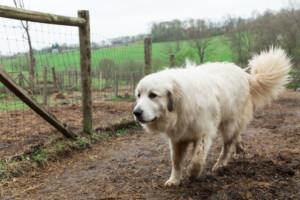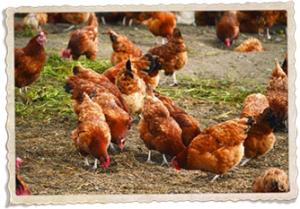From snakes to badgers, there are a lot of potential predators that can threaten your flock. While we can put up as much fencing and wiring as we can, there is only so much we can do. That’s why many chicken raisers employ livestock guard dogs (LGD) to protect their flock.
However, not just any dog can become an LGD. They must be large and strong enough to fend off predators, but also devoted and friendly enough towards the flock they’re protecting.
Great Pyrenees
Great Pyrenees are the most widely used livestock guard dogs in the world. This is largely due to their protective instincts and their friendly nature. While they don’t do well in small pastures, they are right at home in wide open spaces. Additionally their thick coats make them particularly well-suited to colder climates.
Anatolian Shepherd
While reserved and aloof towards humans, Anatolian Shepherds are devoted to their flocks. They will never let anything happen to the chickens in their charge. Plus, with their agile and muscular bodies and their superior hearing, there are few predators that can escape their notice. Their thin coats also help them tolerate warmer climates.
Komondor
For centuries, Hungarians used Komondors as flock dogs. Not much has changed in the present day. These dogs are extremely protective towards their flock, and their heavy, thick coats help them withstand harsh weather. They can be reserved and territorial, so extra training and socialization may be required.
Polish Tatra
Ranging from 80-130 pounds with an affectional and gentle temperament, the Polish Tatra isn’t the stereotypical livestock guard dog. But that doesn’t mean they can’t protect their flock. When a predator appears, these brave dogs will position themselves between the predator and the flock, alert barking to notify the chickens and the humans. Only if a predator moves closer to the flock will the Polish Tatra attack.
For more tips on how to care for your flock, read through our blog or contact Chickens for Backyards today.

